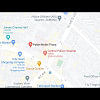DMP collecting personal information
The latest move by the Dhaka Metropolitan Police (DMP) to distribute forms to house owners and tenants asking for all kinds of personal information is baffling. The forms ask for details such as passport, phone, NID and license numbers, marital status, religion and email addresses. The initiative, which was not publicly announced, has caused panic among the people.
DMP officials claim that this is part of ongoing security measures in the wake of recent militant attacks. Apparently, this central database will help the police to catch militants who take temporary shelter in the city and then escape after committing various crimes. It is not clear how collecting this information will help to arrest terrorist activities especially since the perpetrators often use aliases and do not usually have long term residency in the places they attack.
The forms, moreover, do not have any official monogram to authenticate that they are indeed being issued by the DMP. While it is important for the police and other law enforcing agencies to have as much information as possible for the sake of security, collecting personal information of all residents to do so seems unnecessary. The authorities already have basic details of citizens through NIDs and MRPs (Machine Readable Passports). Unfortunately, given the public's basic lack of trust in the police, because of allegations of harassment, this move by the DMP is unlikely to have any positive results. Creating a database of militants, especially those who have been arrested before and freed on bail, seems more logical than creating a sense of unease among ordinary citizens by requiring them to give confidential information.

 For all latest news, follow The Daily Star's Google News channel.
For all latest news, follow The Daily Star's Google News channel. 








Comments